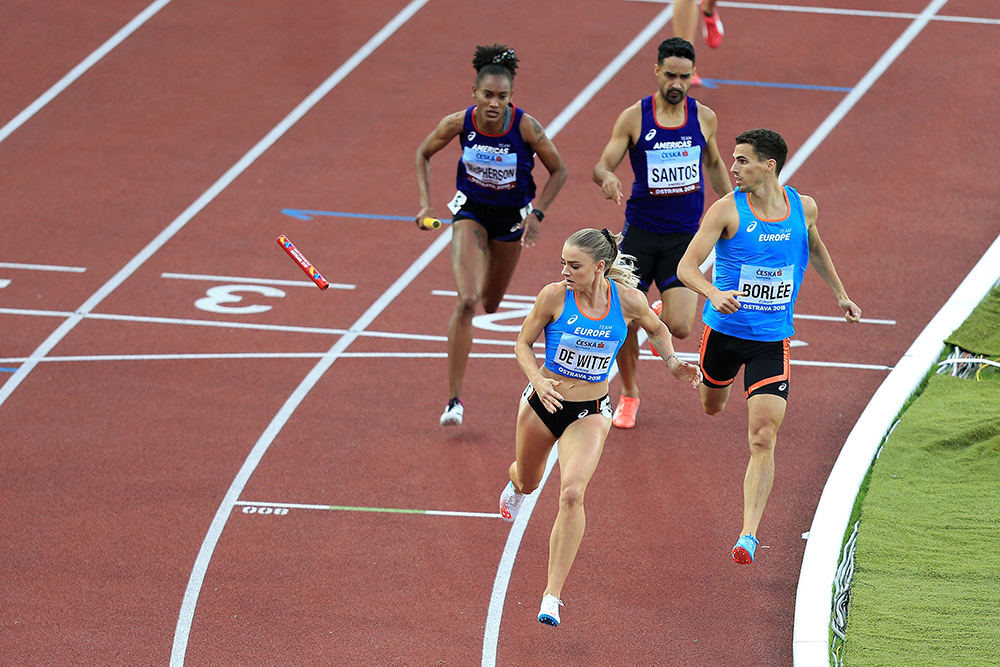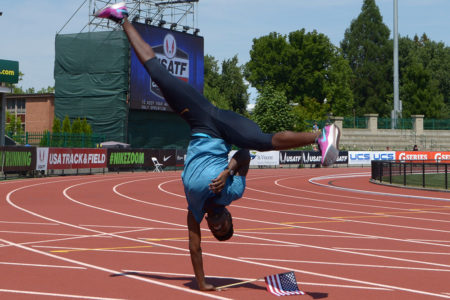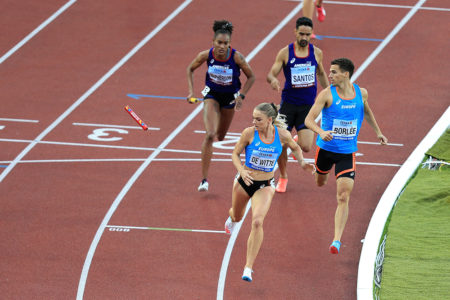
The Continental Cup—or at least its predecessor, the World Cup—has a worthy place in our sport’s history. It came into being back in ’77 as the IAAF tried to find a competition that would free itself financially from the IOC and provide a “World Championships” of its own.
The formula was admittedly somewhat contrived, with a mixture of continental and national teams, but the first few editions—back in the days when there was no such thing as legal prize money—had the stars of the day, great performances and crowds, and made headlines around the world. The World Cup was initially never intended to be a permanent competition but here we are, 41 years later, with it still cropping up on the calendar every 4 years… and generally treated like an alcoholic uncle at Thanksgiving, tolerated for a while but ultimately unwanted.
The lack of real love for the Cup was there for all to see in Ostrava and even the intelligent and usually enthusiastic Czech fans, who help make the annual Golden Spike meet one of the best invitationals in the world outside the Diamond League, voted with their feet. Ostrava’s 15,000-capacity stadium was only two-thirds full on Saturday and with slightly more spectators on Sunday although IAAF head Seb Coe and the local organizers had claimed in the preceding days that every seat had been sold. (“To whom?” was the question being asked by plenty of people.)
Certainly, some athletes performed splendidly, giving the impression that it was still something more than an easy end-of-season payday.
However, the devil-take-the hindmost rules for the 3000s—both with and without barriers—and the poorly-thought-out head-to-head format for the horizontal jumps and throws won very few fans. In the only one of the 4 long races where the elimination rules were applied—the men’s 3000 —did anything like the so-called envisaged entertainment ensue.
As pointed out in Sunday’s T&FN report, while WR holder Beatrice Chepkoech ran away from everyone in the women’s steeple, Ethiopian Weynshet Ansa refused to stop when officials tried to yank her, or didn’t understand what the officials were trying to do, and kept on running for a few laps before later being DQed. This caused confusion with the backmarkers and Europe later unsuccessfully appealed that France’s Ophélie Claude-Boxberger, eliminated two laps from home, had been misled because Ansa was still in the race. Jamaica’s Aisha Praught was pulled at the bell. She said, “We’ve got enough to think about with 35 barriers out there and we can get a bit skittish at times. If I was invited again to run this sort of race, I’d probably have to say no.”
Chaos also enveloped the men’s steeple and provided some wry observations. Because American Evan Jager scratched late (injured ankle), officials began pulling athletes with three laps to run instead of four, visibly confusing some competitors. Then with three laps to go, Bahrain’s John Koech was pulled but just as he crossed the line, Morocco’s Soufiane El Bakkali crashed to the inside of the track. With two men not running, officials then started frantically waving the runners through on the next lap, having decided that no one was going to be eliminated. With a DNF beside his name the luckless El Bakkali got no points. Retrospectively, he would have been better off coming to a halt before the line and jogging through, being eliminated and thus getting a couple of points for his team.
“This Is Not A High School Race”
Flat 3000 winner Sifan Hassan wasn’t impressed with the format either despite her year-leading time and $30,000 first-prize check. “To be honest, I don’t like it. We are professional athletes, and this is not a high school race. I hope they don’t think about putting this in the Olympics,” said the Dutchwoman, making it very clear she wasn’t joking.
One runner who didn’t even bother going to Ostrava once she got wind of the format was Great Britain’s European 5000 silver medallist Eilish McColgan, who tweeted last week: “I wanted to do it but then they changed it to an elimination 3000m so decided to do Newcastle [a road mile] instead.”
However, it was the field events that caused the most controversy, not least the women’s discus. Sandra Perković opened with 224-6 (68.44), the longest throw of the day by more than 10ft and farther than anyone else in the world this year, but after she fouled finished 2nd in the final head-to-head to Cuba’s Yaimé Pérez. At least Pérez played the game and sent a full-blooded effort out to 214-3 (65.30), her best of the competition, but she could just as easily have sent a gentle toss out to 30ft (or inches) and claimed the win. (Into the bargain, many people were perplexed about why Perković had to throw first despite having the best marks across the first three rounds and fourth round.) “This format S-U-C-K-S,” said the disgruntled Croatian. “All events should be equal and to mess around with the field events like this is disrespectful.”
Australia’s Henry Frayne, 4th in the LJ, was another to go public with his disgust. “But I hope the IAAF take note that this format of field events is rubbish. Particularly in combination with the 30 sec rule! (Another trash rule),” he tweeted.
More diplomatically, javelin winner Thomas Röhler, who also had the best effort with 285-8 (87.07), highlighted another flaw in the thinking of whoever designed the rules.
“The new rules are hard to understand from the outside, I am good friends with Jakub [Vadlejch, the Team Europe No. 2] but the first three rounds are about beating your teammate,” correctly analyzed the Olympic champion, noting that only one competitor from each team went through to the two head-to-head rounds.
In fact, Vadlejch had the second-best distance of the competition with 278-1 (84.76)—in similar fashion Ryan Crouser in the men’s shot, had 70-11¾ (21.63) in the first 3 stanzas but didn’t progress as his Team Americas colleague Darlan Romani of Brazil reached a 71-10 (21.89) best in round 2—but failed to make the cut after 3 rounds as his teammate Röhler was better and the local Czech star only got the points for 5th. “I think that attracting new people to athletics with this format is a good thing, but I am looking forward to the good old competition rules,” added the German.
With IAAF sources confirming that no bidders have yet put themselves forward for the ’22 edition, and with opprobrium ringing in their ears from many quarters after the badly-conceived format changes in Ostrava, combined with the envisaged extensive changes to the international calendar which will start to take effect from 2019, perhaps it’s time for the IAAF to consigned the Continental Cup to the annals of history. □






